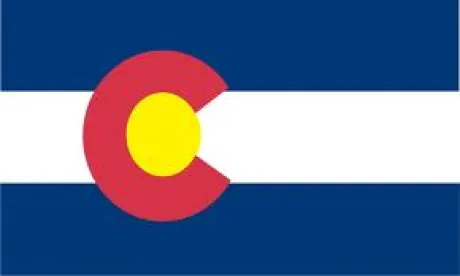Employers operating, even on a limited basis, in Colorado should be aware of Colorado’s recent wage disparity and discrimination bill, which takes effect in 2021 and imposes widespread requirements related to record-keeping, disclosure, and transparency.
In May of 2019, Colorado Governor Jared Polis signed the Equal Pay for Equal Work Act into law. The Act will go into effect on January 1, 2021. The Act was enacted to address pay disparities affecting women and minorities, and includes several provisions aimed at preventing wage discrimination, such as:
-
Prohibiting employers from seeking prospective employees’ wage rate histories;
-
Allowing employees subject to wage discrimination to file a civil action; and
-
Providing for economic damages in the event of a violation, including liquidated damages.
The Act also contains several broader obligations and prohibitions intended to increase pay transparency, including:
-
Requiring employers to announce opportunities for promotion or advancement;
-
Requiring employers to disclose hourly or salary compensation and benefits for each posting or job opening; and
-
Requiring employers to keep records of job descriptions and wage rate history for its employees.
The Act has the potential to impact employers nationwide, as its provisions cover all employers with at least one Colorado employee, and certain disclosures are required whether the relevant position is based in Colorado or another location. Not surprisingly, the Act has led to a number of questions for employers. Here are some commonly asked questions by our clients:
Frequently Asked Questions
Q. Do the compensation and benefits disclosure requirements apply to all positions, or just those based in Colorado?
A. These requirements apply to Colorado-based and remote-based job postings, with a limited exception. The Colorado Department of Labor and Employment (CDLE) has issued final rules interpreting the Act, which provide that the compensation disclosures do not apply to jobs performed entirely outside Colorado or to postings entirely outside Colorado. As such, disclosure is not required where a job is performed in-person, in a geographic area outside of Colorado. Because a remote-based position could be performed within Colorado, disclosures are still required. However, even for remote-based or Colorado-based positions, where the job posting itself is entirely outside Colorado (e.g., a paper posting not available via the internet), the requirements do not apply.
Q. How specific must employers be in disclosing the compensation for a job posting or opening?
A. The Act requires employers to include the hourly rate or salary compensation (or a range thereof) the employer is offering for the position. This compensation range may extend from the lowest to the highest pay the employer, in good faith, believes it may pay for the particular job.
Q. How specific must employers be in disclosing the benefits for a job posting or opening?
A. The CDLE final rules require employers to provide a “general description” of any bonuses, commissions, or other forms of compensation offered for the job. The rules do not elaborate on what a “general description” entails. However, the legislative history provides some guidance in this respect, as it appears that the Public Comment criticized the non-final version of these rules, noting the specific value of incentive compensation like commissions and bonuses are often unknown when a position is posted. The “general description” language was intended to clarify that a specific range or monetary value of bonus compensation and other benefits were not required.
Q. Do employers have to announce promotional opportunities to all employees, or just to employees based in Colorado?
A. The promotion announcement requirements do not apply to employees entirely outside Colorado. Employers need only announce promotion opportunities to employees who perform any amount of work while physically present in Colorado.
Q. Do employers have to announce promotional opportunities in all states, or just opportunities based in Colorado?
A. The Act and the CDLE final rules do not provide any geographic limitation on promotional opportunities that must be announced; employers should announce promotional opportunities in all states to Colorado-based employees.
Q. Does a promotional opportunity have to include a pay raise, or does an increase in responsibilities suffice?
A. A promotional opportunity includes any promotion in compensation, benefits, status, duties, or access to further advancement.
Q. Do all promotion opportunities have to be announced, or just those that would constitute a promotion for the Colorado-based employees?
A. According to the CDLE final rules, a promotional opportunity exists when the employer has or anticipates a vacancy in an existing or new position that could be considered a promotion for one or more employee(s). An “employee” includes any person employed by an employer covered by the Act. Therefore, if any vacancy arises that could be considered a promotion for any person employed by the employer, the employer must make reasonable efforts to announce it to all Colorado-based employees.



 />i
/>i
